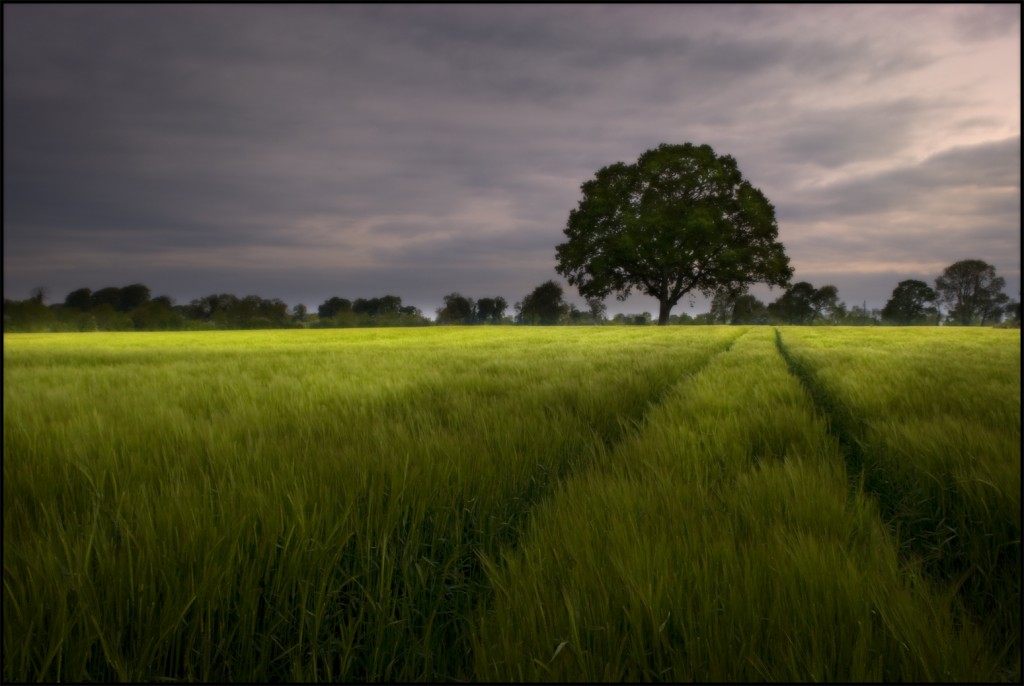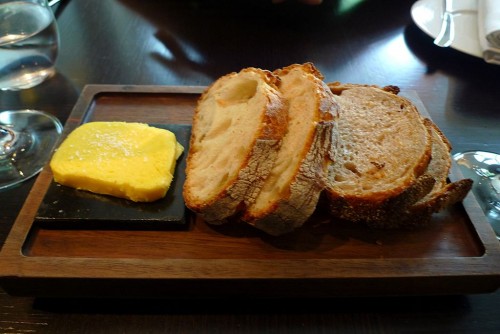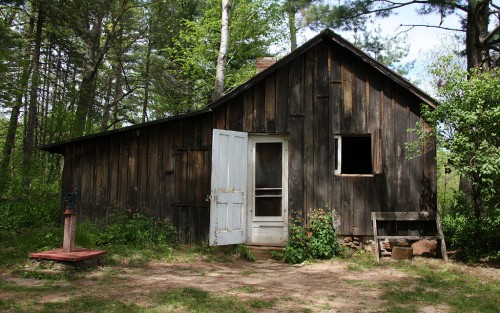I come now to a third valuation of what Aldo Leopold said in “Conservation Economics” when he noted a
widespread conviction that our whip-hand over nature is no unmixed blessing. We have gained an easier living, but in the process of getting it we are losing two things of possibly equal value: (1) The permanence of the resources whence comes our bread and butter; (2) the opportunity of personal contact with natural beauty.
First I looked at the resources whence come our bread and butter, and I said that if we are going to use the world “wealth” we ought to mean by it these very resources. They are the real wealth that back the paper we usually reserve the world “wealth” for. Second I looked at the whip-hand itself and what that means for man’s relation to nature, and I said it bespeaks an adversarial man-nature relation that is at the heart of modernity itself, the main intent of which is to bring nature to heel.
Now I consider “the opportunity of personal contact with natural beauty,” which has been central to the conservation movement and is probably a concern many people share even though they are not invested in conservation in the manner that Leopold was.
In an attempt to achieve some measure of rhetorical symmetry, we could call natural beauty “the resources whither we go in search of our bread and butter,” but of course that is nonsense. It is wrong in a thousand ways. In an age when few people knead dough and fewer churn butter, personal contact with natural beauty is generally nothing more than another consumer act. The English word for it is “vacation,” and it is perhaps one of the greatest absurdities we have reconciled ourselves to. I will return to this point at the end.
I won’t rehearse here the history of wilderness protection. It is available to anyone who qualifies for a library card and can sit still long enough to read. But I will paraphrase three American writers whose work is pertinent to the topic at hand. In “Walking,” Thoreau said that “in Wildness is the preservation of the world. Every tree sends its fibres forth in search of the Wild. The cities import it at any price. Men plough and sail for it.” In The Unsettling of America, Wendell Berry said that “if we are to be properly humble in our use of the world, we need places that we do not use at all. We need the experience of leaving something alone. We need places that we forbear to change, or influence by our presence, or impose on even by our understanding; places that we accept as influences upon us, not the other way around.” And, under the guise of Poor Richard, Benjamin Franklin reminded us that you know the worth of water when the well runs dry.
Franklin’s quip gestures toward the first of Leopold’s concerns: water, the mystical element about which a certain Walker Percy character rhapsodized, is a sine qua non. Without it you will find yourself lying in short order with kings and counselors, none of whom are on this side of the sod. And, as I noted previously, improvements in the pump aren’t improvements in the well. The latest computerized pump isn’t going to draw water from an empty well, not even if the pump is equipped with a GPS-guided divining rod and the option of unlimited talk and text. Technology is not a resource. In an age of depleted resources it is not even an aid to getting them. It is a gimmick.
(What I am writing this essay on, and what you are reading it on, is a gimmick. These gimmicks won’t solve any of the scarcity problems that the earth’s nine billion denizens currently face, though the gimmicks most certainly will contribute to the scarcity.)
Thoreau’s quip gestures toward the second of Leopold’s concerns. The more middlemen we put between ourselves and the sources that sustain us—the more citified we become—the more we are going to need wild places to go to. We can suffer the office or the cubicle for only so long. We weren’t made for a disembodied existence, and both our minds and our bodies know this. Sooner or later we are going to need contact with an oak tree not given to us by pixels in a room illuminated with buzzing florescent lights. The artificial, the manufactured, won’t do for creatures who aren’t artificial or manufactured. Eventually we’ll require a drink of water under the shade of a real oak.
(I acknowledge that there are people who prefer the artificial and manufactured. They would rather have chlorinated pools than trout streams. To them microwaveable “food” is better than fresh asparagus. But this is not an essay about people who are only 50 percent human.)
Franklin anticipated what would eventually become the only two modes known to Americans—complacency and crisis—and Thoreau anticipated our need to regard nature as a tonic. But Berry went a step further by insisting that we be Nature’s worthy pupils, willingly susceptible of her influence and instruction.
Leopold understood this. He insisted on the importance of any meaningful contact with the wild because he understood that wild places provide necessary instruction not otherwise available. It was the fierce green fire in the eyes of the dying wolf that got him thinking like a mountain, and it was because he learned to think like a mountain—that is, like an ecosystem—that he became an advocate of conservation and wilderness preservation.
But he also understood well the practical difficulties of these necessary disciplines. “The salient geographic character of outdoor recreation,” he said,
is that recreational use is self-destructive. The more people are concentrated on a given area, the less is the chance of their finding what they seek…. Dispersion, then, is the first principle of recreational planning. Dispersion of outdoor playgrounds has the equally important attribute of enhancing their accessibility.
But, he added,
it is inconceivable to me that the “leisure for all” revealed to us in Mr. Hoover’s dream can be spent mainly, or even in large part, on public recreation grounds. Already the public grounds are so congested that the solitary recreationist must either invade such of their roadless hinterlands as may have temporarily escaped the CWA, or avoid them altogether. The expanding demand for recreation must in some way be spread over both public and private lands, or else, like Shakespeare’s virtue, it will “die of its own too much.”
The necessary criticism is implied in this last sentence. Expanding demand is a consequence of increasing artificiality. Our periodic need for the wild grows as our quotidian experience of it shrinks. And this should tell us something about our lives and about how out-of-balance they have become. Leopold called recreational use of the outdoors self-destructive because he saw that we had become not users but consumers of nature.
It is hard to imagine someone whose work keeps him close to the weather and the ground needing leisure time to “get back to nature.” Like all men he will certainly need leisure time, and like God he will take rest from his labors, but his scales will not be so tipped that he needs to adjust the balance.
The family vacation, which is an odd exercise of cramming as many household goods into an automobile as it will hold and then driving them somewhere else for a few days of harried falsification, is a sign of imbalance if ever there were one. That unpleasant experience of natural beauty should teach us something—if not about nature than at least about ourselves.
But reimagining life along such lines as require more outdoor work of us—gardening comes to mind, and then canning—involving ourselves more in the sources whence come the bread and butter, wielding the whip-hand less violently: these are the first steps in restoring that “personal contact with natural beauty” that so concerned Leopold. And, having taken these steps, we will discover what it means to be proper users rather than mere consumers of nature. Better that than learning the value of water the hard (and dry) way. Better that than dying of our own too much.






